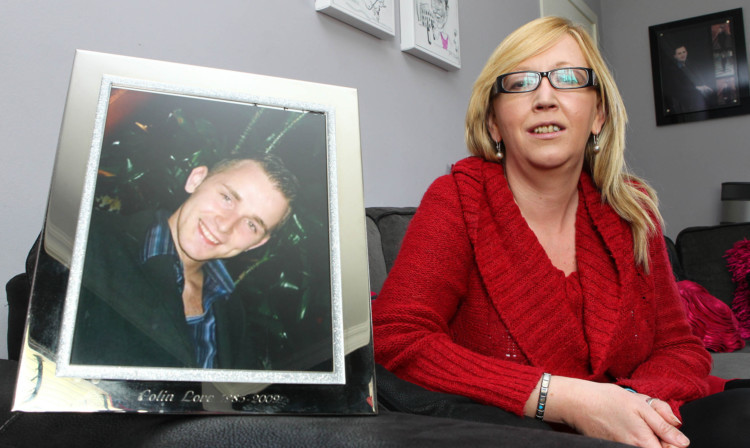
Julie Love set up charity DAYNA Death Abroad You’re Not Alone after her son Colin died in a swimming accident in Venezuela in 2009.
The keen traveller went for a swim while visiting Margarita Island and, despite being a good swimmer, he was caught in the undertow and drowned.
There were no warning signs in what was, Julie later learned, a notoriously dangerous stretch of water.
Julie, who works in admin with Glasgow Addiction Services, feels she had to battle with authorities to find out why there was no warning of the dangerous waters.
After realising she wasn’t the only one to feel aggrieved about the handling of a situation, she established DAYNA to provide advice, translation services and referrals.
It’s a legacy to Colin and all those like him. Many families who have benefited from the charity’s assistance, such as the Divers and Jean McCulloch, have staged fundraising nights to give something back to the organisation.
In the past seven days The Sunday Post has spoken to many more relatives of British nationals who have died abroad and don’t feel the governmental support was of the standard they expected.Like Sherrin Kennedy, from Minishant in Ayrshire.
Her 30-year-old son Jonathan was murdered in Nuth, Holland, in January 2007. She says she learned of the news after reading it on Ceefax.
Jean McCulloch received a call from a friend of her son Alan at 3.20am last January to tell her the 42-year-old had been found dead on a beach in Cambodia, where he’d been backpacking.
“I’m still waiting on a phonecall from the Foreign Office to tell me my son is dead,” said the Glasgow mum.
“I wouldn’t miss the demo it might not do anything but at least we are getting our voices heard.”
Jeanette Rooney’s mum, Agnes, was found dead in France last October. The 64-year-old from Corby had been coming home from a holiday in Bulgaria when she was discovered in Boullard.
Six months on, youth worker Jeanette doesn’t know how her mum died and has yet to have her repatriated, after discovering that some of her mum’s organs had been removed by French pathologists.
She describes her dealings with the Foreign Office as “horrific” and “uncompassionate”.
Michael Porter is the youngest of three boys whose mother Jean Hanlon was found dead in Crete five years ago. The 53-year-old from Duhad moved to the Greek island after enjoying a holiday there, but her fresh start in life ended in tragedy when her body was discovered in a harbour.
Local police suspect foul play but with little new evidence having been uncovered a trial looks unlikely. The 29-year-old musical theatre performer lives in London and will attend the demo.
“My brothers and I weren’t even aware of the Foreign Office at the time of Mum’s death and we had absolutely no contact from them,” he says. “We’re trying to get answers for our mum, but also to make sure the support is there in the future. We shouldn’t have to stand on a street and parade our grief.”
A Commons Select Committee is in the midst of an inquiry into the Foreign and Commonwealth Office’s consular services. As part of the investigations they created a forum for UK nationals and their families who have found themselves in situations of difficulty or distress abroad.
Statistics from the FCO’s British Behaviour Abroad Report 2013 shows there were 19,244 instances of consular assistance cases in 2012/13, and 6,193 deaths of British nationals overseas in the same period. Spain had the highest number of deaths at 1,492.
A Foreign Office spokesman said: “The FCO will meet with any family who is concerned about the death of a loved one overseas. This is a difficult time for any family and the FCO has teams of trained professionals in the UK and across the world ready to offer support.
“Every year, over 6,000 British nationals die overseas, and the FCO offers to provide consular support to every single family in conjunction with a range of partners including the police and coroner services.
“We regularly review our policy and our training for staff, seeking feedback from specialist NGOs and support groups as well as from families themselves.
“However, investigation of the death of any British National is a matter for the judicial process of the country they died in, and we must respect their systems just as we expect them to respect the UK’s laws and legal processes.”

Enjoy the convenience of having The Sunday Post delivered as a digital ePaper straight to your smartphone, tablet or computer.
Subscribe for only £5.49 a month and enjoy all the benefits of the printed paper as a digital replica.
Subscribe